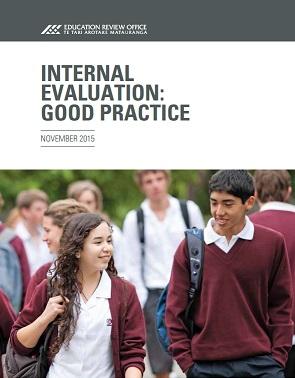Evaluation at a glance: What ERO knows about effective schools
Published: 09 Mar 2011
Evaluation at a Glance: What ERO Knows About Effective Schools explores five themes from a cross-section of ERO's evaluations in primary and secondary schools over the past four years:
- A focus on the learner
- Leadership in an inclusive culture
- Effective teaching
- Engagement with parents, whānau and communities
- Coherent policies and practice in a cycle of continuous self review
- Audience:
- Schools
- Content type:
- Research
- Topics:
- Evaluation
- Schools
- Community






